|
Ever since reading Thoreau as a child, and his arguments against spending our time working to buy things we don't always need I've been interested in work, time and finding your own 'enough'. As a result it was a pleasure to talk with Samuel Alexander, founder of the Simplicity Institute about the how our conceptions and experiences of time play a role in moving towards less consumption based lifestyles. We talk here about everyday time use, but also ideas of progress, success and revaluing time.
What is common to all of them the assumption that it’s ok to ask someone to squeeze something more in. We ignore the illnesses, the anxiety, the overwork and ask for ‘just a little bit more.’ I have the feeling that this is something that many people will be familiar with. It’s something that happens to us and something many of us do to other people.
Perhaps one reason we do this is that we get so caught up in our own deadlines and worries that we can’t accept that what we had planned just isn’t going to happen. The report you really hoped to have in the newsletter won’t be getting written. The attendees at your event won’t be synchronised with each other. Once, when a speaker had to cancel their attendance at a meeting I’d organised, I didn’t get back to them for a week because I was too busy worrying about what I was going to do without them. In my own work I’ve come to think about time as a form of relationality. Our stories about time tell us what is it to be with others, or to not be with them. They also tell us what kinds of forms this ‘withness’ can take. This means that time can also be seen as a form of ethical encounter. If that’s so, what are we doing when we ignore other people’s claims that they don’t have the time? It seems that in order to treat the other ethically, you have to come to terms with your disappointment, let go of the anticipated future you had been working with, and then still have the generosity to be able to say to the person who has somehow let you down “Of course, no problems, hope things get better for you soon”. I had a lovely lesson in this when I witnessed a colleague deal with a keynote having to drop out of an event only a couple of weeks before the start date. The speaker had obviously wrestled with the guilt of doing this and was extremely apologetic. Almost immediately the reply came back that they would be missed, but it is far more important for them to take care of themselves, everyone would manage, and there was no need to feel bad. Even though it wasn’t directed to me, the kindness and compassion of it brought me to tears. I had this in mind when I was sitting in that network coordination meeting, listening to stressed people being asked to take on even more. I realised that sending them the email passwords ‘just in case’ would still add another thing to the pile of things they felt like they should be doing. So I objected and suggested that they should in fact be deliberately not sent the password so they wouldn’t have it at the backs of their minds. It was only a tiny little gesture, but it’s an event that stays with me because it reminds me that there are these kinds of ethical decisions to be made, and I hope I can learn to be more like my colleague, who focused on care rather than guilt. Tamara DiMattina is a social entrepreneur who has been involved in a number of sustainability projects focusing on reducing consumption. We were intrigued by her project 'Buy Nothing New Month' with its clear objective of using time as a basis for reforming our relationship with 'stuff' and so conducted this interview with her about the project. We talk about time, fashion, creativity and whether or not sourcing things second hand might actually give you more time.
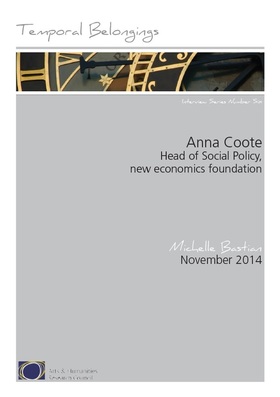 Two further interviews in the Temporal Belongings Series are available. In the first I talk with Anna Coote, Head of Social Policy at the new economics foundation. We focus particularly on her involvement in the 21 hours project and the accompanying edited collection Time on Our Side: Why we all need a shorter working week. In the second interview I talk with Katherine Gibson, an economic geographer and member of the Community Economies Collective about her most recent book Take Back the Economy: An Ethical Guide for Transforming our Communities as J.K. Gibson-Graham and with Jenny Cameron and Stephen Healy. Both are part of the Sustaining Time project, looking at the role of time in building more sustainable economies.
I'll be visiting Australia from mid-March to mid-April and will be presenting on two of my recent projects, In Conversation with... and Sustaining Time. Please do come along if you are in Melbourne, Sydney or Wollongong. Multispecies Methods: Participatory Research and the more-than-human Widespread interest in challenging the traditional divides between humans and non-humans has contributed to a growing push for methods that can work with the distributed knowledges, experiences and values of our multi-species worlds. In response, proposals for the development of etho-ethnology and ethno-ethology (Lestel et al. 2006), multi-species ethnography (Kirksey and Helmreich 2010) and zoömusicology (Taylor 2013), amongst others, have augmented, hybridised and remade methodological repertoires. Participatory research methods have a long history of grappling with problems around who is understood ‘to know’ within the research process. These methods challenge what kinds of knowledges are seen to be legitimate, while also attending to the problems of producing knowledge within contexts of stubborn inequality. As a result, an engagement with the various debates that have taken place within participatory research offer a rich opportunity for those working with non-human others to reflect on their methodologies in complex and sophisticated ways. This paper analyses the outcomes from a recent research project that explored the potential for developing more-than-human participatory approaches. Over the course of four workshops, the team drew on participatory design, participatory action research and ethical frameworks for community-based participatory research to frame their encounters with dogs, bees, trees and water. Discussing some of the affordances and frictions that we experienced in this process, I will draw out some of the consequences of trying to think the ‘more-than-human’ and ‘participatory research’ together. Throughout I pay particular attention to the ways our preconceptions around ‘who knows’ were tested, expanded and confounded by our immersive experiences in more-than-human worlds.
Transforming economies, transforming time? Economic crisis, austerity politics, energy supply uncertainty, climate change – these are just a few of the issues igniting interest in alternatives to the neoliberal capitalist model. Focusing on the potential of collaborative relationships, rather than ones based on competition, proponents of more sustainable economies are exploring gift economies, peer-to-peer, shared consumption, crowd-funding and co-operative models. Broadly speaking, it has often been assumed that shifts in the dominant economic model have brought with them shifts in dominant understandings and experiences of time. Industrial capitalism is often linked with new uses of clock time, for example, while late capitalism is been associated with a speeded up, 24/7, networked time. Such narratives provoke the question of what kind of time(s) might a sustainable economy be characterised by? Drawing on case study material, interviews and archive research, this paper looks at three of the most easily recognisable candidates (slow rather than fast, circular rather than linear and balanced rather than overworked). In each case, narratives of epochal shifts are challenged and a more complicated, impure account of the politics of sustaining time is developed. WOLLONGONG
Wednesday 1st April 2015 12:30PM - 1:30PM Building 41 Room B41.157 University of Wollongong More Info
Originally published on the Sustaining Time blog, part of an AHRC funded project which asks the question: What would be the time of a sustainable economy? 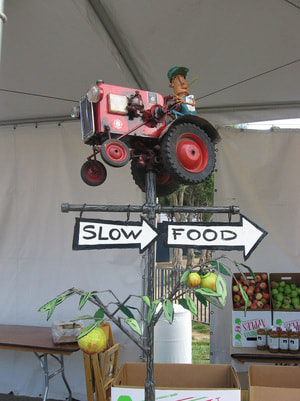 Slow food this way (Laurie O'Neill CC BY-NC-SA 2.0) Slow food this way (Laurie O'Neill CC BY-NC-SA 2.0) The Slow Movement often comes up when I talk to people about the Sustaining Time project. It’s a nice clear way of explaining why you might want to think about time as part of developing more sustainable forms of economics. Slow Food, for example, suggests that a sustainable food system would need to use a very different time to the one guiding industrial agriculture. And of course the slow movement hasn’t stopped there but has been moving into a whole range of different areas, including into research with ‘slow science’ and ‘slow scholarship’ gaining more attention. So I have very much been looking forward to attending the Slow University II seminar, which was held in Durham last week, and included Carl Honoré and Chris Watson as speakers. It seemed like a great opportunity to explore the 'sustaining time of research'. But throughout the event, I found myself becoming increasingly uneasy about the way the Slow ethos was being deployed, particularly in Carl's presentation, and I wanted to explore some of the reasons here. Carl Honoré has been writing about the Slow Movement for some time now and many people at the event had brought along their copy of In Praise of Slow. His presentation covered similar themes to this book, including his own epiphany over needing to slow down when he realised he was constantly rushing through story-time with his son. He also explored a number of examples of the way the slow ethos is showing up in the most unlikely of places including Google’s 20 percent time project, Ariana Huffington’s effort to redefine success with the Third Metric and Jeff Bezos instituting 30 minutes of silent reading before meetings at Amazon. If these businesses could recognise the benefits of Slow why not the university? And so Carl offered three suggestions for what proponent’s of a Slow University might want to focus on:
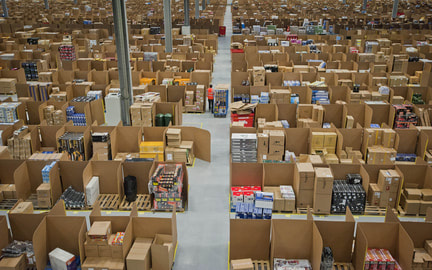 Amazon - Official Opening (CC BY-NC 2.0 Scottish Government) Amazon - Official Opening (CC BY-NC 2.0 Scottish Government) The question of who is Slow for? was asked in a couple of reflections on the first Slow University seminar and, I think, continued to be a prominent question at this event. It is a crucial question, because as Sarah Sharma argues in her recent book In the Meantime: Temporality and Cultural Politics “capital invests in certain temporalities - that is, capital caters to the clock that meters the life and lifestyle of some of its workers and consumers. The others are left to recalibrate themselves to serve the dominant temporality” (139). In each of the three large organisations mentioned above, for example, it is very clear that Slow is only for some. As Andrew Norman Wilson’s contribution to FACT’s Time & Motion exhibition uncovers, Google’s used of colour-coded badges determines how much access an employee has to self-directed work time and its time-saving infrastructure of free shuttle buses, meals, haircuts etc. Ariana Huffington has come under regular criticism for her business model based on the free labour of others, including masseurs. And even Carl noted the hellish conditions suffered by workers in Amazon’s ‘fulfilment centres’ (see also my post on the time of Amazon). When I asked about these discrepancies in the implementation of the slow ethos, Carl suggested that the model could be seen as a kind of Trojan horse that has the ability to transform organisations from the inside once it has found an initial foothold. Perhaps he will be proven to be correct, but part of me wondered whether it might not be the other way around. Was neo-liberal capitalism instead turning slow to its own ends, adding slow-washing to its stable of methods that already included green and white-washing? The benefits of Slow were almost completely described in terms of its ability to make you a better worker. Far from being ‘the opposite of a productivity ninja’ as was suggested at the beginning of the seminar, 'slow' seemed to equal 'productive'. For example, Carl talked about the ‘delicious paradox of slow’ where working slow actually allowed you to work faster, producing more than someone caught in a harried, unfocused rush. Described in this way it didn’t seem that the ethos of Slow was operating as a critique of capitalist temporalities of production but might instead be one of its latest incarnations. A core aim for the seminar was to find ways of supporting ‘ethical scholarship for the common good’ through recalibrating the time of the academy. But the focus on individualised experiences of speed and pressure, which seem to dominate the literature on the Slow ethos, suggest that it might have capitulated too easily to what Sharma describes as the “expectation that everyone must become an entrepreneur of time control” (138), where we invent and implement our individualised techniques of slowing down. Such an approach fails to deal with the uneven and unequal ways our time is intertwined with others and thus to confront the “new forms of vulnerability [that] are necessitated by the production of temporal novelties or resistances to speed” (150). Perhaps the core question then isn’t how can the university slow down, but how might it find ways of supporting ‘ethical times for the common good’. Reference: Sharma, Sarah. In the Meantime: Temporality and Cultural Politics. Durham and London: Duke University Press, 2014. Originally published on the Sustaining Time blog, part of an AHRC funded project which asks the question: What would be the time of a sustainable economy? 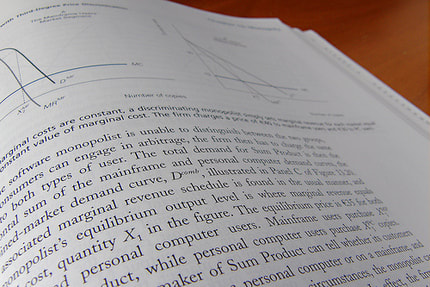 Economics by Mark Wainwright (CC BY 2.0) Economics by Mark Wainwright (CC BY 2.0) It’s been a little while now since we’ve put up a new post on this project and I can’t help but feel the irony of not having enough time to devote to a project that is exploring the possibility of developing more sustainable relationships to time. But as perhaps many others have found, your projects never really forget about you. They keep calling to you, cutting through all your busyness and eventually reeling you back in. So to get back into the swing of things, I wanted to revisit some of the core questions that first inspired the project. Starting off with the most obvious perhaps: Why might a focus on time be important for understanding how to shift to more sustainable economies? The perfect storm of multiple crises, including climate change, the peaking in supply of a whole range of key resources, as well as the astounding inequality fostered by current economic systems, have turned many towards developing and implementing alternative approaches. Challenging the philosophical basis of conventional economic theories has been an explicit aspect of this. As a result, the dominant paradigms of neoclassical economics are, at best, seen as being comprised of naive assumptions that fail to capture the complexity of human interdependencies on each other and on the environment. All around us, the dominant stories of how people interact with each other and the kinds of incentives and rewards they respond to are shifting. Instead of competitive self-interested units, we are more generous, more co-operative and more complex than main-stream economists give us credit for. The structure and characteristics of the web woven between the human and non-human, between the biological, the mineral and the elemental are being questioned and described in new ways. Gift-based economies, the new commons, cooperation, abundance instead of scarcity and distributed networks are just a few examples. 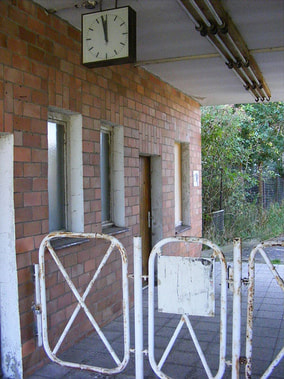 Bestwood factory entrance by Sludge G (CC BY-SA 2.0) Bestwood factory entrance by Sludge G (CC BY-SA 2.0) How might time fit into this then? If time is just an objective flow that we measure, then it has about as much to do with economics as π (pi) does. It’s an unchangeable constant that we just need to live with. But what if this story about time is as much of a distortion as the story about ‘economic man’? What if time is also more complex, more interconnected and more dependent on social webs than we’re usually taught? That like the maps that tell us stories about space, our clocks are not simply telling us ‘the time’ but are telling stories about time that are cultural, political and partial? What if time is tied to our webs of relations in such a way that when these webs change so does time? There is already research that suggests that broadly speaking different economic systems seem to be associated with different approaches to time. For example, pre-industrial societies with task oriented time, industrial capitalism with an intensification of clock-time and late capitalism with speed and acceleration. And if we look for further clues within alternative economics, new sustainable times come tantalisingly into view. Steady-state futures or degrowth displace stories of the progressive arrow of time. Movements like Slow Food, Permaculture or Transition are making deliberate attempts to redesign everyday life around slower tempos and complexity-based models of social change. This suggests that social change doesn’t only happen in time, but happens through changes to time itself. The aim of this project then is try see if we can make some of these shifts in time more visible and more intelligible. But in going about this, we are making the following assumptions which make things more complicated:
|
Archives
November 2022
Categories
All
|
||||||||||||||||||||||||||
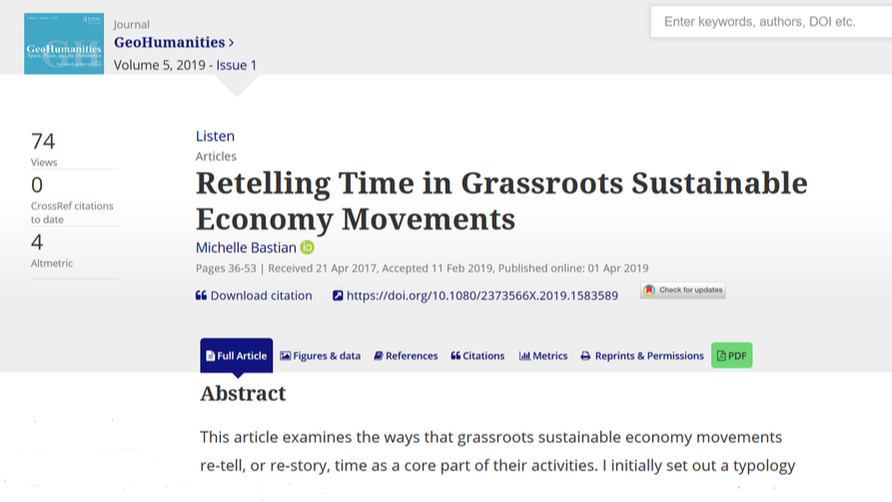
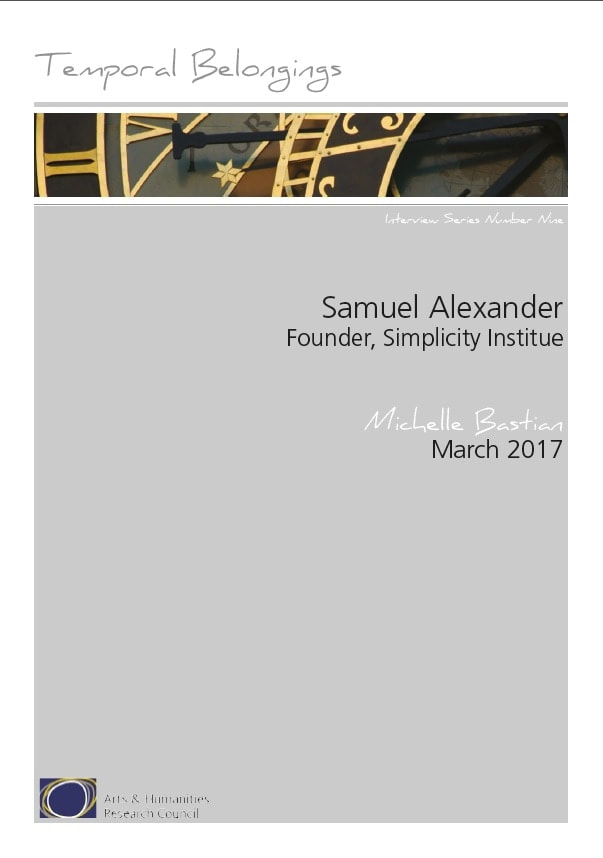
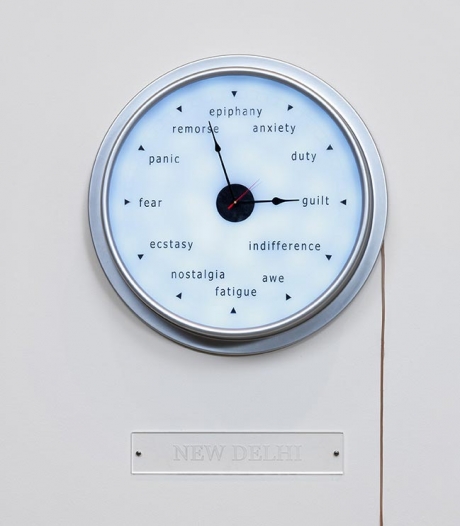
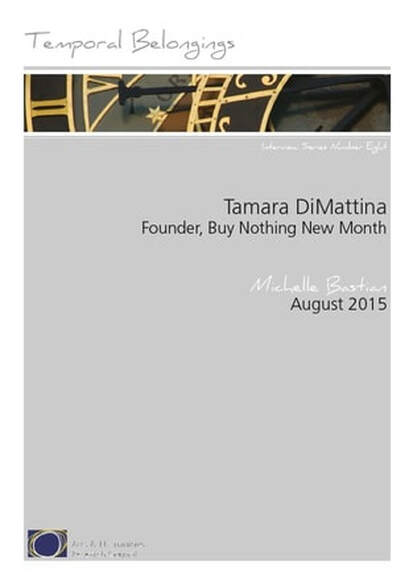
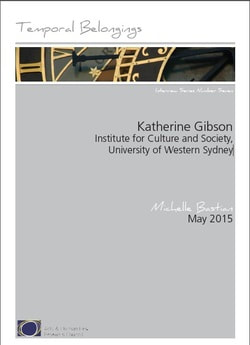
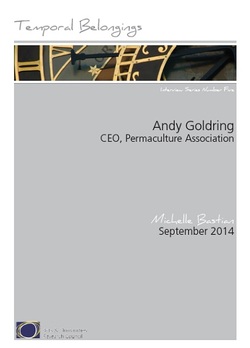
 RSS Feed
RSS Feed
